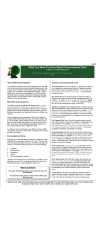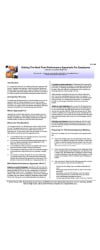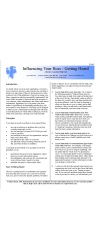Well, There’s Power, and Then There’s Power!
To answer the question we have to distinguish between two kinds of power. First there is the kind of power that is associated with a formal position in an organization’s hierarchy, such as the CEO, VP, Department Head, or Unit Supervisor. Holding such a positions confers some ability to control reward, punishments, working conditions and other things that affect employees. We call this formal power, or you can also call it positional or role power
When most people talk about leadership and power, that’s what they mean.
The other kind of power doesn’t come from having a formal position, so both formal and informal leaders can wield it. We can call this form of power informal power, or influential power, since it is based on the ability to influence and not on the ability to control the rewards and punishment or the work environment. Informal power is a result of others (peers, other managers, rank and file) choosing to follow because the leader creates trust, loyalty and inspires others.
So, leadership IS about power, one way or the other. The effective leader makes use of both kinds of power, rather than relying on one or the other. Formal power is used to remove roadblocks for employees, for example, since some roadblocks can only be removed by someone with formal authority to do so. Formal power also involves the responsibility to make decisions, both hard and easy. The exception of course is for informal leaders who do not have formal power. They do not have the responsibility of wielding formal authority, so they can’t adbicate it.
Informal power (or the power to influence is also critical to leadership success). It’s very difficult and time intensive to sustain an effective organization through the use of brute force or formal power. And it doesn’t create high performance organizations. Inspiration, influence, trust and loyalty are elements that do, and are part of the use of influential power.
So, both are needed. Leaders who abdicate their responsibilities in the use of power, particularly formal power, end up being perceived as weak, ineffective, indecisive and ultimately ineffective. It’s a balance.






